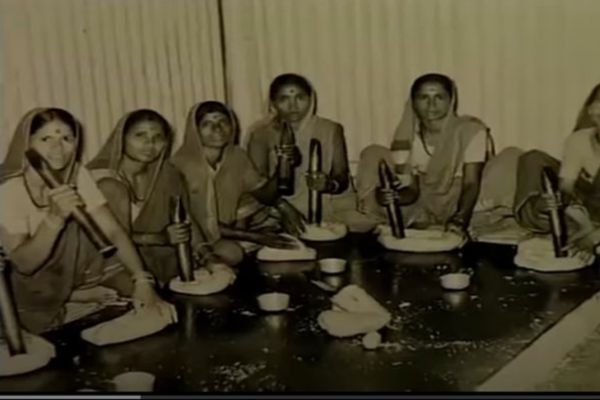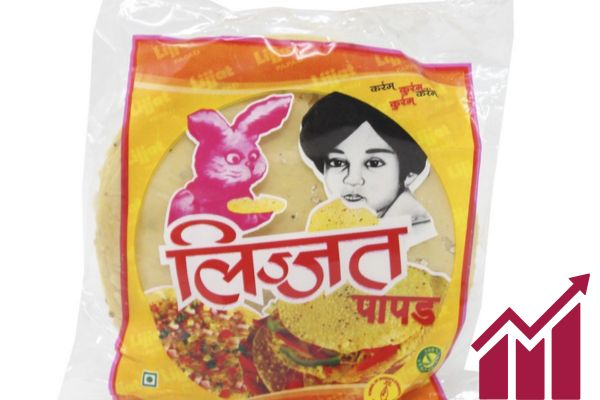India is a country which is home to a variety of small business ventures, small manufacturing houses and cooperatives. One such small cooperative which will be covered in this article is none other than Lijjat Papad, which is now known to almost every Indian consumer, due to its quality, taste, trust and the brief history it has attached to itself during its ongoing concourse of operations.
Shri Mahila Griha Udyog Lijjat Papad, which translates to “Women home industry Tasty Papad”, is a well-established business which mainly involves itself in fast-moving consumer goods. The goods consist of everyday home use, such as soaps and detergent, spices, eatables like papad, bakery products, and flour.
Objective:
The main objective of the organization consisted and still consists of the empowerment of women through providing them employment opportunities to help them achieve their personal goals and make them financially independent.
The organization was always considerate in catering to the needs of their women employees. This paved the way for them to increase their network and have more employees with them in order to increase productivity throughout the country.
The birth of Lijjat Papad:

Lijjat Papad was started in 1959 by seven Gujarati Women from Mumbai. These seven women are now not only known by millions of Indians, but also act as an inspiration for a lot of women who struggled with work, and earning a livelihood for themselves.
These women are now known as Jaswantiben Jamnadas Popat, Parvatiben Ramdas Thodani, Ujamben Narandas Kundalia, and Bhanuben. N. Tanna, Laguben Amritlal Gokani, Jayaben V. Vithalani, and Diwaliben Lukka.
They decided to start their small business by borrowing 80 rupees from Chagganlal Kamsi Parekh, who was a social worker and provided them with the apt needs.
The sum of 80 rupees may seem a small amount in today’s time, but adjusting with the rates of inflation and costs incurred today, this amount was equal to the sum of 80 USD. This money was still a bit less to make a good amount of investment, but they started their venture even after the challenges faced.
The business was started at a terrace of a building, with all available ingredients arranged by them for manufacturing of the Papads.
They started their production by a small quantity of 4 packets of papads, which they later on sold to a known merchant.
Problems and setbacks faced:

Initially, the women were met with a facade of problems and challenges. They had to bear the unexpected issues of frequent power cuts, lack and inadequate availability of equipment, inadequate storage facilities, and a small quantity of production to grow their organization.
Despite these challenges, the women persevered and gradually built a thriving business. They adopted a unique business model, where each member of the cooperative was a co-owner and a co-worker. They worked together to manufacture and sell the papads, and the profits were shared equally among all members.
The women were also able to minimize these issues through the help of other employees as well. They started to expand as a cooperative system of business, and later began to employ girls who were in dire need of work and employment opportunities. The age limit was however fixed, as no girl below the age of 18 was allowed to work in the organization. These women brought proper utensils, storage modes, and cupboards along with them for help to the cooperative business.
Chhaganlal became quite an important guide and help to the organization, as discussed earlier. Chagganlal insisted on not reducing the quality of the papad for a little monetary gain, as then no one will then be willing to purchase the papads due to its inferior quality. Hence only good quality products were produced by them in the presence of the following factors.
In the first year, the venture was able to earn a sum of 6196 rupees, which was a commendable annual sale despite the conditions which they faced.
Publicity and growth:

As Lijjat Papad grew and expanded over its concourse of operations, the cooperative increased its span to other cities, and more women started to join the venture. Presently, Lijjat Papad has around 45,000 employees in various parts of India spread across 22 states. It is now a fast-growing multi-crore enterprise that has become the norm and the thing before a perfect dinner in an Indian household, middle class, poor, and rich all alike. The cooperative also possesses a wide product line which includes other popular Indian snacks, and spices which are used in everyday food.
Its publicity began during the olden times when its publicity was made through vernacular newspapers, and through word of mouth. This was a quick boost in the overall work and increased their sales and revenue to a wide span of people.
By the end of its third year of operation, it started getting a lot of employees, which was around 300.
Along with an increased number of employees, now the terrace didn’t have enough space for the accommodation of 300 people working. Since they still were working in a smaller area, the leftover flour and ingredients were given to the remaining employees of which they would make their own use.
They also made a step to start a new branch in the nearby suburb of Malad, in 1961, however, it was a failed attempt and was unsuccessful.
In 1962, the name Lijjat(translation in English from Gujarati: Tasty) was chosen as its trademark and is now on the tongue of every household.
Conclusion:
In totality, the inspiring and awe-striking story of Lijjat Papad is one that didn’t fail to highlight the power of women’s cooperative businesses in promoting gender equality and empowering women to grow financially and also become independent in their households as well as work that requires a fair amount of mind.
The cooperative has now built a national brand and notable symbol that is a household name in India and stands on the foundation of women’s empowerment. Its success is a testament to the resilience and determination of the women who started the small venture and took it to great heights. It is a story that is often told and celebrated, as it provides inspiration to millions of women in this country, and for a few instances, even across the world.















